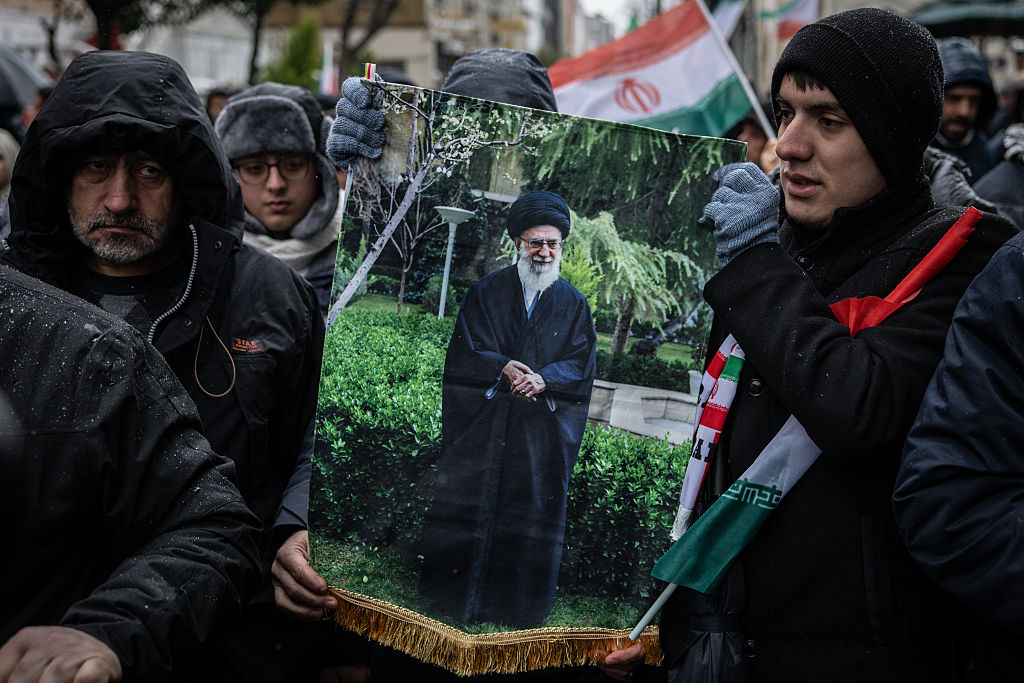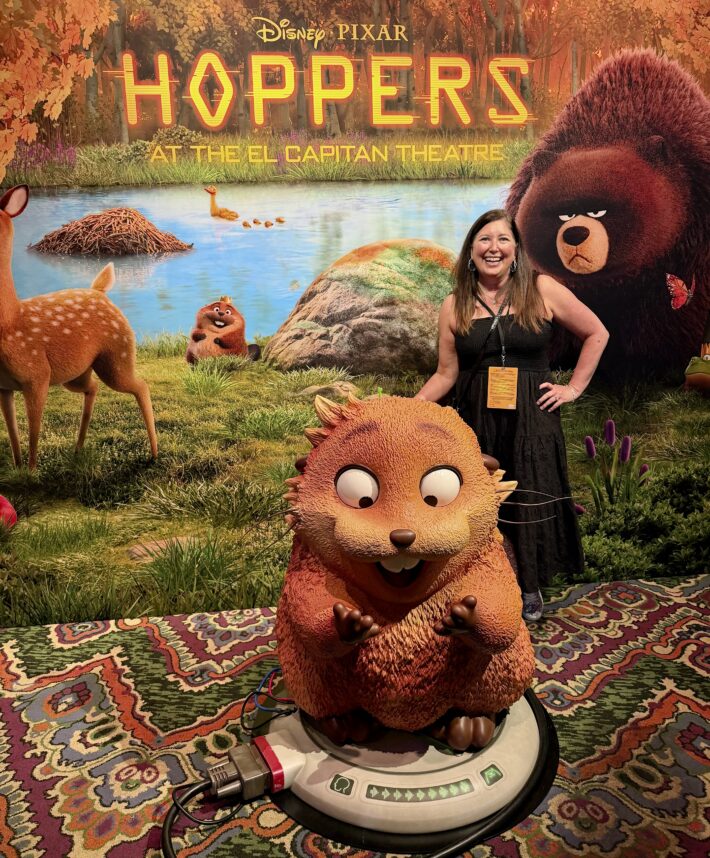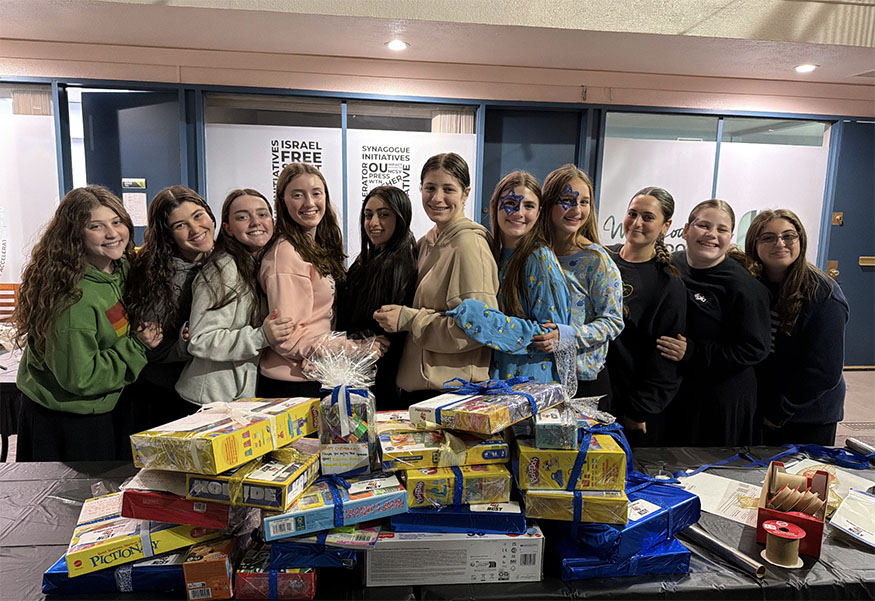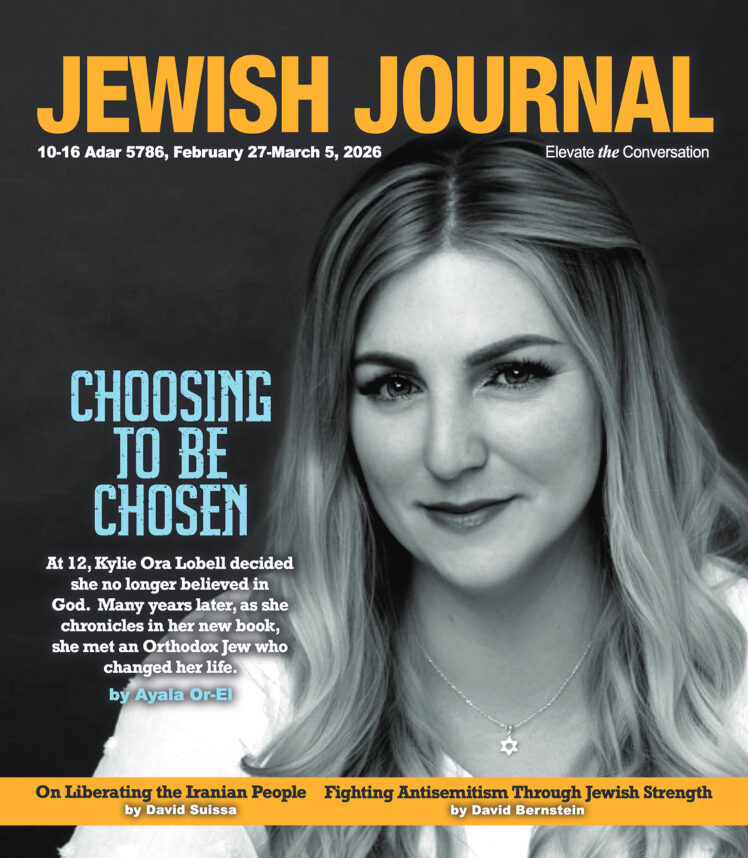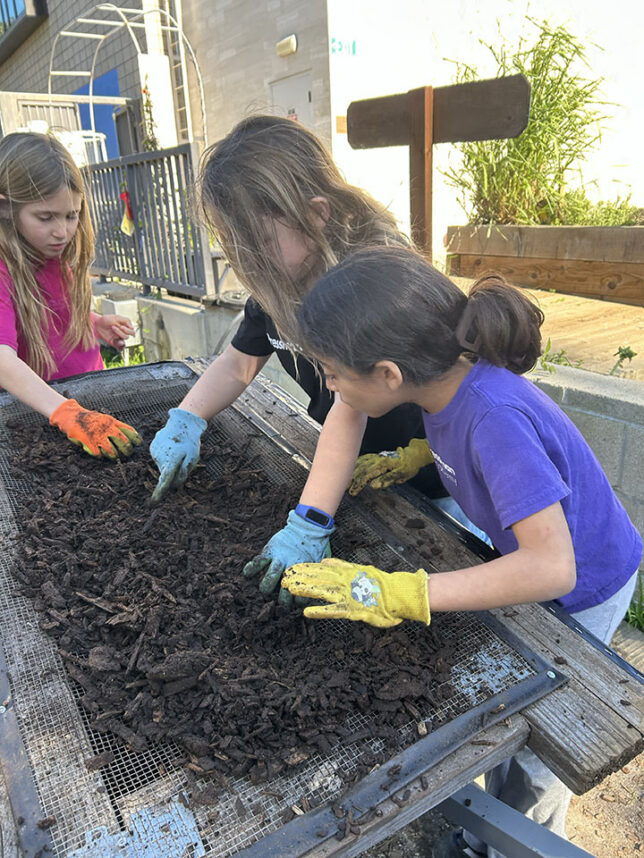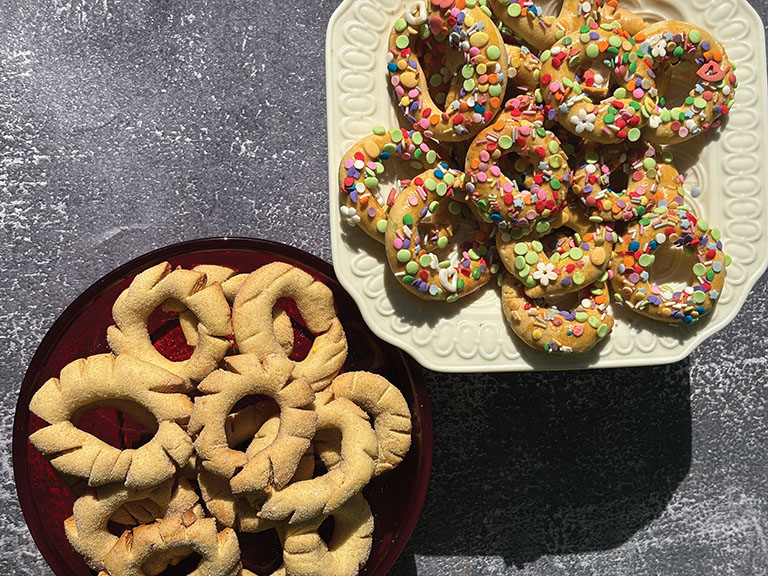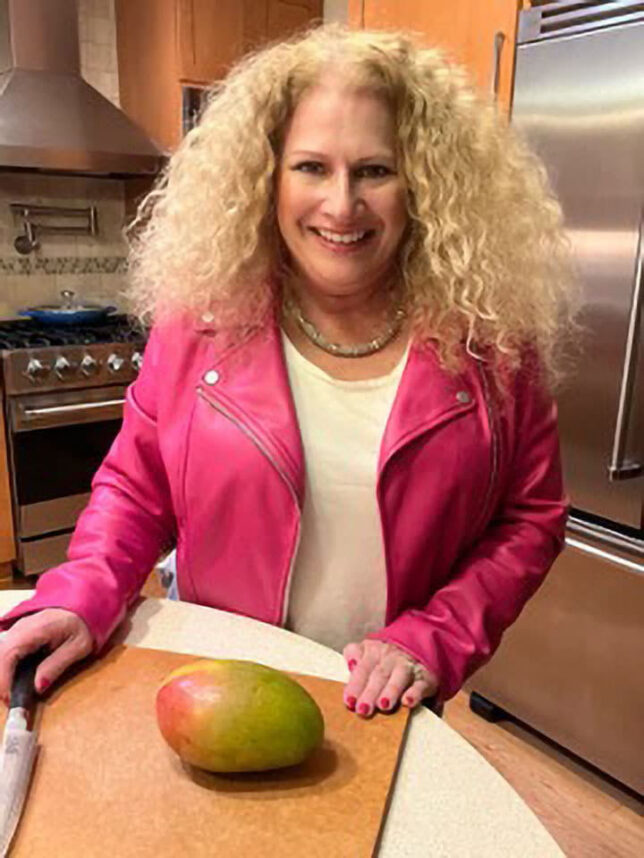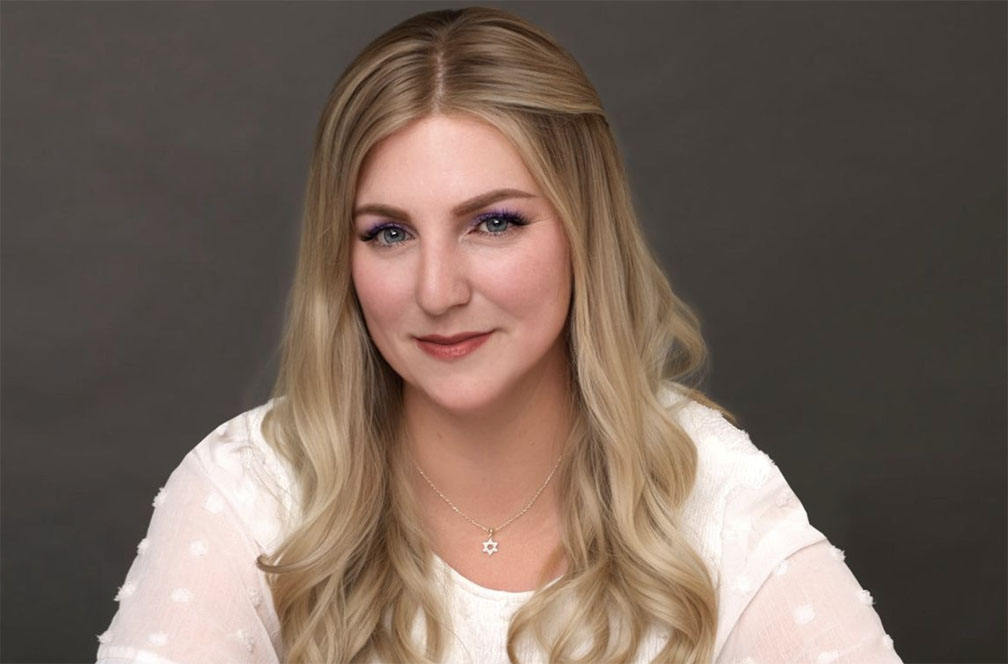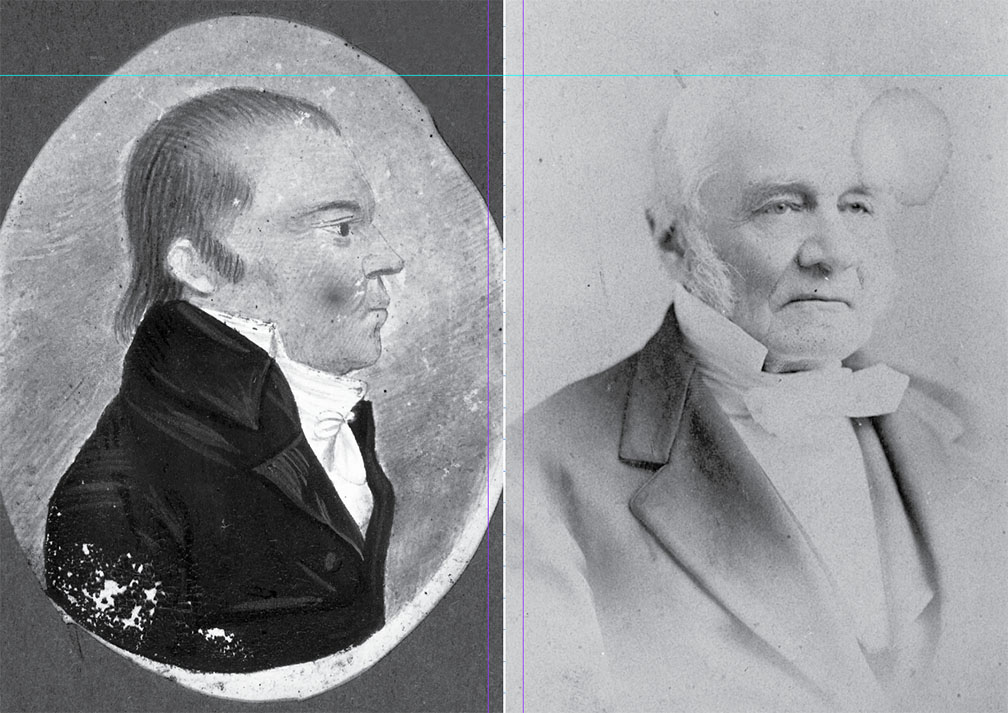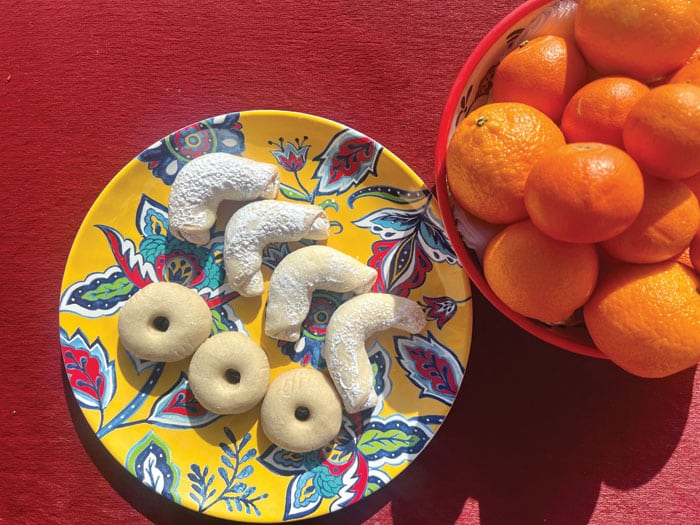
When I met Neil, I also met his friend Lela, who along with her siblings were part of the Sephardic Educational Center (SEC) in the 80s. Soon Lela and I also became friends. Whenever I visited her family home, her mother Sarina was super welcoming, her face brightened with the most beautiful smile. Lela married Harley at Sephardic Temple a month before Neil and I were married there. Lela and Harley have lived in Seattle ever since and they have become pillars of Seattle’s renowned Sephardic community. Over the years, Neil and I would visit them in Seattle and whenever Lela and Harley were in Los Angeles visiting family, we would always make time for a night out together.
This New Years Day, Lela and Harley invited us for brunch at their home in Malibu. On her kitchen counter was a plate of authentic Syrian cookies. Sharon and I are going to let Lela tell the rest of the tale of how they came to be there.
—Rachel
On Christmas Day, I was reminded how far our legacy connects us to the next generation and beyond. Lucia, a dear friend, (practically a family member) paid me a visit from out of town. As many Catholic women do, Lucia celebrates the beauty of Christmas by bestowing gifts of baked goods. She brought us cookies from our own Syrian heritage. She had baked greibe, akin to a Mexican wedding cookie adorned with a pistachio or candied bead and araz b’ajweh, date-filled horns. My mother, Sarina Sabin, had passed only two weeks earlier and it was she who had taught these recipes to Lucia.
My mother Sarina Sabin née Mizrahi was born in Mexico City to a family of 14 children. Her parents had moved there with their two eldest children from Damascus, Syria. The Damascon (Shami Jews) stuck together and she was brought up in a vibrant close-knit Syrian community.
In 1955, my mother was introduced to my father Abraham, who was born and raised in Brooklyn. Their parents knew each other from Damascus and soon enough a marriage was arranged. She moved to Brooklyn in the fall and it wasn’t long before the harsh New York winter weighed on her. She didn’t speak a word of English. She was cold and lonely and she really missed her family. After six long months, she proclaimed that she was joining some of her siblings in Los Angeles whether my father followed her or not. Follow her he did.
My parents soon had three children and became fairly entrenched in the L.A. Syrian community. My father Abie was even part of the committee that founded Sephardic Hebrew Academy (now Maimonides).
My mother became renowned for her culinary skills and everyone remembers having a seat at her table. It’s unclear how she learned to cook, whether she was specifically taught or just absorbed the skills from watching and helping her mother. Whether she was frying kibbe or making tacos, everything that came out of her kitchen was delectable.
Unfortunately, my father passed away at the age of 59 and my mother was left to raise my older sister Celia, 22 years old, and my younger brother Edward, 12. I was 17 and just starting college.
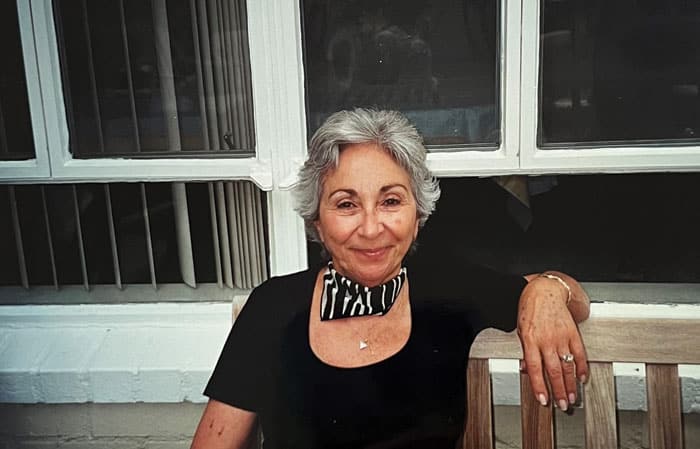
My mother harnessed her skills as a bilingual woman and an amazing cook to support her family. She worked full time in a law office doing Spanish to English translation, and she catered. She started her cooking for hire after recipients of her delicious food asked if they could pay her to make them more. She began frequenting her beauty salon where she gained a reputation for delicious Mexican food. After that, she added Syrian mezze and sweets to her repertoire.
Weekends in my mother’s home were often spent making hand formed kibbeh, sambusak, greibe, ma’amul, and araz b’ajweh.
Lucia came to this country from Mexico when she was very young and found sanctuary in our home. She became far more than an employee, she became our sister, our fellow prankster. My mother virtually raised Lucia. Later, when she obtained amnesty in the United States and found a different job in retail, Lucia continued to live with my mother as her “fourth” child.
We all helped my mother with the catering, including Lucia. And we all learned to create these delicacies as well.
My mother’s tremendous cooking skills helped ensure that all three of her kids could get college educations and beyond. Her most famous job was cooking family dinner for Steve Lawrence and Eydie Gorme four nights a week. In her day, she served stars likes Barbra Streisand, Danny Thomas, Phil Donahue and others. But the biggest joy of her life was feeding her family — her children and grandchildren. Memorializing Sarina, her grandchildren all touted her delicious French toast. It may not have been extraordinary, but if Grandma made it, it was perfection.
I was truly touched when Lucia brought me these confections of my childhood. Needless to say, they reminded me of my mother and of those precious moments in her kitchen.
I was truly touched when Lucia brought me these confections of my childhood. Needless to say, they reminded me of my mother and of those precious moments in her kitchen. Lucia says she makes them every year for her entire family.
She’s not the only one. My mother’s caregiver, Carmen, and my sister’s longtime nanny also make Greibe and give it to their loved ones for Christmas. Mama’s lessons definitely paid it forward.
The entwining of cultures is truly beautiful to behold. It teaches us that through food we spread our heritage, our experience and most importantly our love for one another and beyond.
—Lela Sabin Franco
Sarinas Greibe
1lb sweet butter, clarified
Equal volume of vegetable oil
(Measure the butter in a cup after you clarify it and then match the amount)
5 to 6 cups flour
1 ½ cup sugar (baker’s is best)
1 ½ cup powdered sugar
A couple of drops of rose water (optional)
- Melt the butter in a pot over the stove or in the microwave.
- Skim off all of the white grainy part of the butter to leave it completely clarified.
- Add the same amount of oil to a big bowl and combine.
- Slowly add both sugars, mixing to incorporate them completely. (Make sure that there are no lumps of sugar or butter in the batter.)
- Add flour a little at a time until you can form a soft ball (about 5 or 6 cups)
- Add a couple of drops of rose water (optional)
- Form balls the size of a walnut and place on a tray then press the center of the cookie with a clean, unused pencil eraser to make a hole.
- Bake at 350 degrees until slightly gold on the bottom edges.
Sharon Gomperts and Rachel Emquies Sheff have been friends since high school. The Sephardic Spice Girls project has grown from their collaboration on events for the Sephardic Educational Center in Jerusalem. Follow them on Instagram @sephardicspicegirls and on Facebook at Sephardic Spice SEC Food. Website sephardicspicegirls.com/full-recipes













